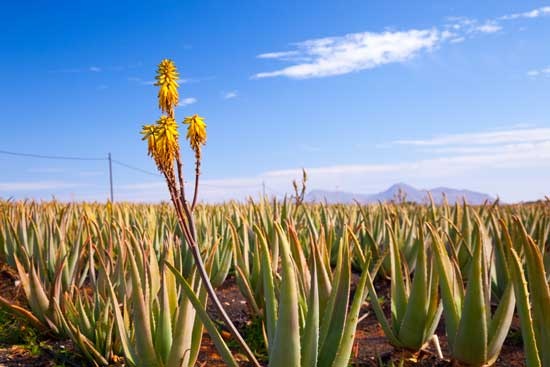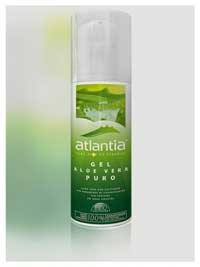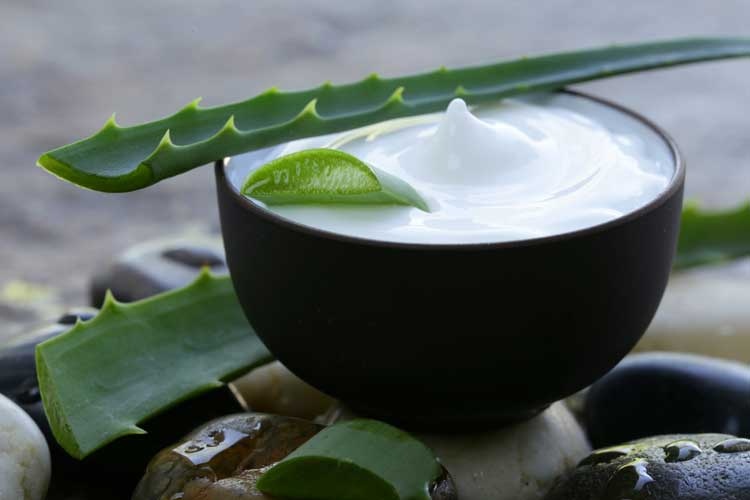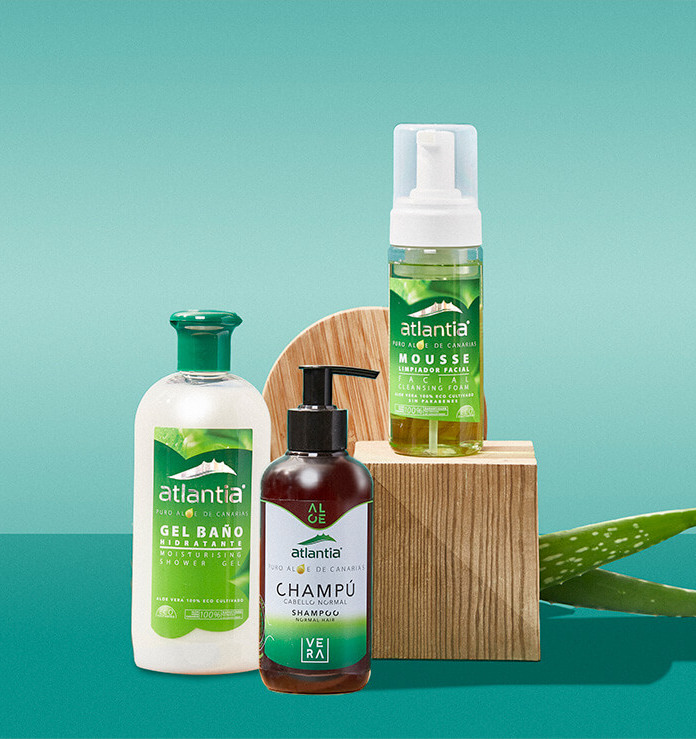The main cause of this situation lies in the unique conditions for cultivating a high quality Aloe vera in the Canaries: warm, dry and breezy environment. It is also that the Archipelago has become Europe’s main region for cultivation and production, also called “Penca Zabila”.
"Canary islands" branding
Nowadays it’s very common to see numerous ”Canarian” Aloe vera cream commercials. A practice that leads to deception and lies, by checking how the label shows a particular discrepancy between “Canary Islands” branding and the actual place where the product was imported from.
On the label appears the responsible for placing it on the market, which may be a manufacturer or a distributor (as in our case), but DOES NOT provide information on the origin of the aloe juice (INCI: Aloe barbadensis leaf juice) which has been used as raw material for the making of the product. “Pirates” or counterfeiters take advantage of this to use Aloe of a different origin to Canarian and then falsify labeling information. Especially when the distributors appear on the label.
These products have a naturally high amount of active ingredients and minerals. Besides, this can be appreciated upon smelling or trying on the skin as it is freshly extracted from the leaf.

Pure aloe vera gel
Tal es el caso de nuestro Pure Aloe Vera Gel, eco grown and with no added water for body care. It is a gel extracted from filleted Aloe vera leaves cultivated in the Canary Islands. Thanks to ecologial cultivation, the meticulous production process, we achieve optimal preservation of all active ingredients in the inner leaf.
That is why we can emphasise that the whole of Atlantia Aloe vera does come from ecological plantations in the Canaries. Also, thanks to cold settle and the speed of the packaging, the pure juice of this plant retains all the properties and freshness in the final product.

Falsified creams are cheaper
The producers of Aloe on the Islands also highlight that the price of these types of commercial creams is much lower than the product made from cold settled Aloe vera juice and not from concentrate or lyophilised. Which makes it quite difficult to position among consumers the true Aloe vera of the Canaries.
The industry also denounces the damage done to the “Canary Islands” branding due to the fact that a visitor buys a product that is thought to be 100% made in the Archipelago, and when used, discover its resemblance to a conventional cream. There are also many tourist who choose to return to their countries with Canarian Aloe Vera products.




